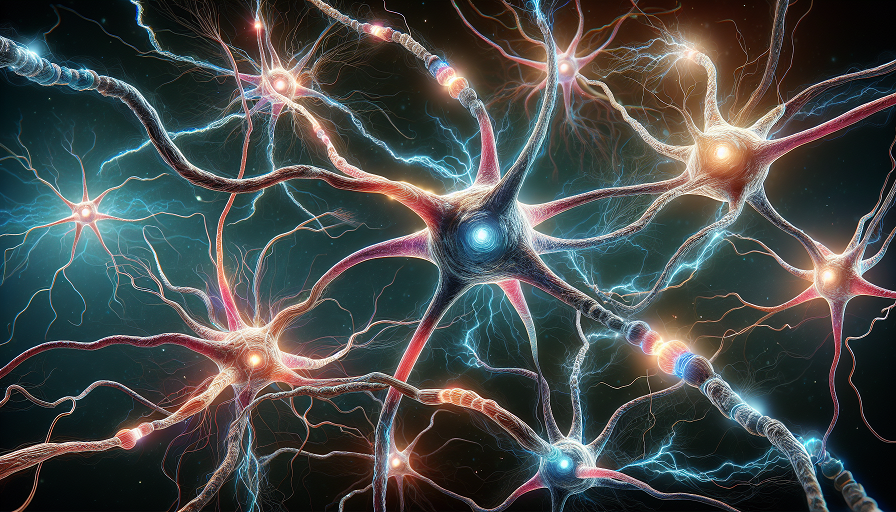
In today’s modern world, everyone seems to be searching for an edge—a way to enhance their brain power, improve memory, and think clearer. The idea of intelligence enhancement has sparked tremendous interest, especially through the use of nootropics, also known as “smart drugs.” However, while the promises of these substances are captivating, they also raise several ethical questions. Where do we draw the line between acceptable self-improvement and unethical enhancement?
Contents
Understanding Nootropics
Before delving into the ethics, it’s important to understand what nootropics actually are. Nootropics are substances claimed to improve cognitive function, particularly executive functions, memory, creativity, or motivation, in healthy individuals. They range from natural supplements like ginkgo biloba and omega-3 fatty acids to lab-produced chemicals like Piracetam and Modafinil.
The promise of these substances lies in their potential to enhance brain health and performance safely and effectively. Many people, from students preparing for exams to business professionals, are curious about whether these cognitive enhancers live up to the hype or if they’re just another modern-day snake oil.
The Potential Benefits of Nootropics
Nootropics are celebrated for their potential benefits, which include:
- Improved Memory: Some nootropics are believed to help with short and long-term memory retention and recall, which is especially appealing for students and the elderly.
- Enhanced Focus and Concentration: The ability to remain focused and absorb information for extended periods is another claimed benefit.
- Mood Boosting: Certain nootropics can elevate mood and reduce anxiety, allowing for improved performance under stress.
- Neuroprotection: Many nootropics are antioxidants or have properties that protect brain cells from damage, potentially slowing neurodegenerative diseases.
Given these purported benefits, the allure of nootropics is understandable. However, it is crucial to consider both scientific evidence and ethical implications before embracing these substances.
The Ethical Dilemma
The Fairness Issue
One of the main ethical concerns is fairness. If nootropics do enhance cognitive abilities, is it fair to allow their use? Consider a scenario where two students are competing for college admission—if one uses nootropics and the other doesn’t, does the enhanced student have an unfair advantage?
Moreover, in a workplace setting, could employees feel pressured to take nootropics to stay competitive, even if they would prefer not to? These questions point to a broader societal debate about the fairness of these substances and their impact on equality and opportunity.
Health and Safety Concerns
The long-term effects and potential risks of nootropic use are not fully understood. With many of these substances still undergoing research, their safety profile is not entirely clear. Ethically, it’s important to weigh the risks against the benefits. Should individuals be allowed to make their own decisions about taking these substances, or should there be more regulation to protect public health?
The Question of Autonomy
Autonomy, the right of individuals to make informed decisions about their own lives, is a fundamental ethical principle. Supporters of nootropics argue that individuals should be free to determine whether or not to use these substances. However, critics point out that the potential pressure to use nootropics in competitive environments could compromise genuine autonomy.
Impact on Personal Identity
An often-overlooked aspect is the influence of cognitive enhancers on personal identity and authenticity. If a substance can change one’s thinking patterns or personality, it can alter how individuals perceive themselves and how others perceive them. Does enhancing cognitive abilities with nootropics change who we are, or does it just give us a better version of ourselves? These questions require careful reflection.
Future Directions for Nootropic Research and Policy
The journey of nootropics in the realm of cognitive enhancement is far from over. As scientific inquiry progresses, we anticipate several key areas of development that could redefine how these substances are perceived and utilized.
Interdisciplinary Research Collaboration
Advancements in nootropic research will benefit greatly from interdisciplinary collaboration, integrating insights from neuroscience, psychology, ethics, pharmacology, and sociology. Such collaboration could yield a comprehensive understanding of how cognitive enhancers affect the brain and behavior, as well as their societal implications.
Personalized Nootropic Regimens
With ongoing genetic research and the evolving field of personalized medicine, there may come a time when nootropic regimens can be tailored to individual genetic profiles, lifestyle, and specific cognitive needs. This personalization would enhance efficacy while minimizing adverse effects, offering a more suitable approach for individuals seeking cognitive enhancement.
Global Regulatory Standards
The establishment of global standards and regulations for nootropic substances could help mitigate health risks and ensure user safety. By defining clear guidelines for manufacturing, marketing, and consumption, regulatory bodies can protect consumers and foster trust in the safety and efficacy of these products. This standardization would also facilitate international research collaborations, allowing scientists to pool resources and knowledge.
Educational Outreach and Public Discourse
Promoting public understanding of nootropics through educational outreach initiatives is essential. Open forums and educational campaigns can encourage informed discussions about the ethical and practical considerations surrounding cognitive enhancement. Public engagement can lead to more nuanced perspectives, reducing stigma and fostering informed decision-making.
Balancing Nootropic Use with Ethical Considerations
As the use of nootropics becomes more prevalent, society must navigate the delicate balance between embracing scientific progress and safeguarding ethical principles. A few steps that can help in finding this balance include:
- Enhanced Research and Regulation: Increasing investment in research that focuses on both the benefits and risks associated with nootropics is crucial. Regulation based on well-established research can help ensure these substances are safe for use.
- Informed Consent: Educating the public about the potential benefits and risks allows individuals to make informed decisions about using cognitive enhancers, preserving autonomy.
- Consideration of Ethical Implications: Societal conversations about the fairness and impact of nootropics on personal identity and social dynamics are essential in forming policies and personal choices.
As we move forward, the role of nootropics in intelligence enhancement will continue to evolve. Engaging in open discussions about their ethical implications may help guide us in making choices that enhance our cognitive abilities while respecting our ethical boundaries and maintaining our humanity.

